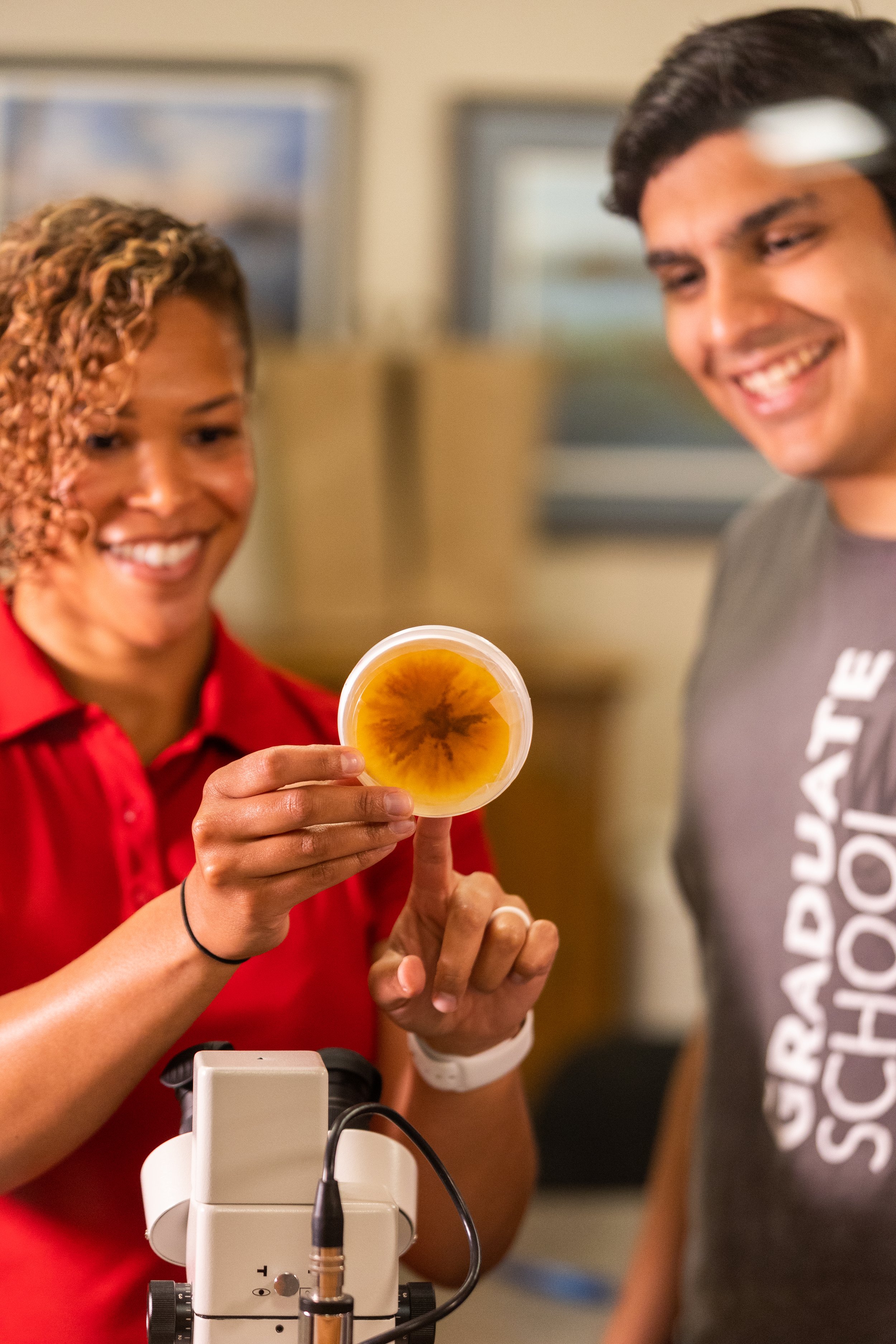Cran Career Spotlight: Plant Pathologist
Overview
Plant Pathologists use their knowledge of plants, pathogens, and their interactions with the environment to study plant diseases in cropping systems. They work with growers, industry stakeholders and other researchers such as horticulturists and entomologists.
What is this career like?
Plant pathologists work in offices, laboratories, and at experimental research stations and fields. Many deploy experiments and collect data that can be analyzed in the lab or office. Most plant pathologists work full time at universities, federal agencies, and industrial agriculture agencies.
Some of the things plant pathologist might do:
Develop and test research questions, hypothesis, and objectives.
Survey growers and stakeholders about main disease concerns impacting their industry.
Collect and compile data from samples of plants, pathogens, insect vectors, air, soil, and water.
Analyze samples in the lab for pathogen detection, characterization and identification.
Develop plans to prevent and control diseases of cropping systems.
Provide information and guidance to growers, stakeholders, processors, government officials, and the general public on best management practices for current and emerging diseases.
Prepare publications, newsletter articles, technical reports and presentations that explain research and findings.
What skills are needed?
Becoming a plant pathologist requires a combination of scientific knowledge, technical skills, and practical experience. Plant pathologists study plant diseases, their causes, mechanisms of infection, and management strategies.
· An understanding of plant biology, anatomy, physiology, microbiology, and agricultural practices is important to diagnose and study plant diseases.
· Ability in various diagnostic and laboratory techniques, including microscopy, culturing pathogens, maintaining plant tissue cultures, analyzing molecular data, PCR (polymerase chain reaction), and DNA sequencing, is essential.
· Ability to conduct field surveys, sample collection, and monitoring of disease outbreaks is important for studying disease patterns and developing management strategies.
· The ability to design and conduct experiments, formulate research questions, problem solve, and contribute to scientific literature.
· Effective communication is crucial for presenting research findings, writing scientific papers, collaborating with colleagues, and educating the public or stakeholders.
· Collaboration with agronomists, geneticists, entomologists, and other specialists is common in plant pathology.
· Knowledge of integrated pest management (IPM) principles, including cultural, biological, chemical, and genetic methods, is essential for developing effective disease management strategies.
What education is required?
Most plant pathologists have at least a bachelor's degree in plant pathology, plant science, biology, or a related field. While a bachelor's degree can open some entry-level positions, many plant pathologists pursue advanced degrees for higher-level positions, research opportunities, and teaching roles. A master's (M.S.) or doctoral (Ph.D.) degree in plant pathology or a closely related field is often required for advanced positions.




